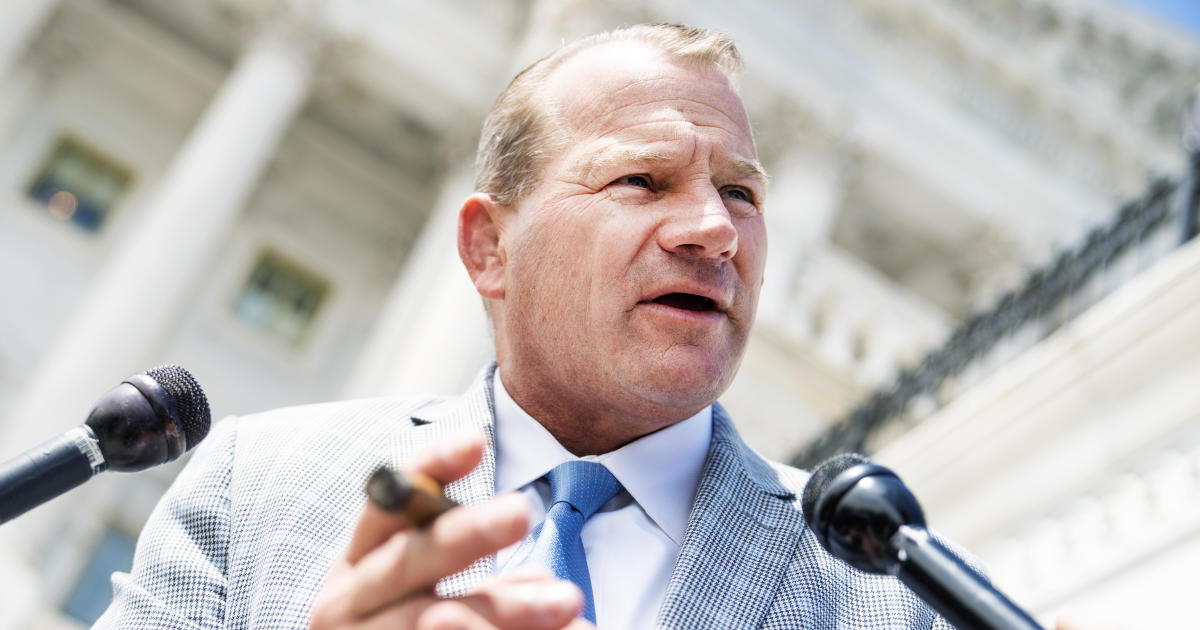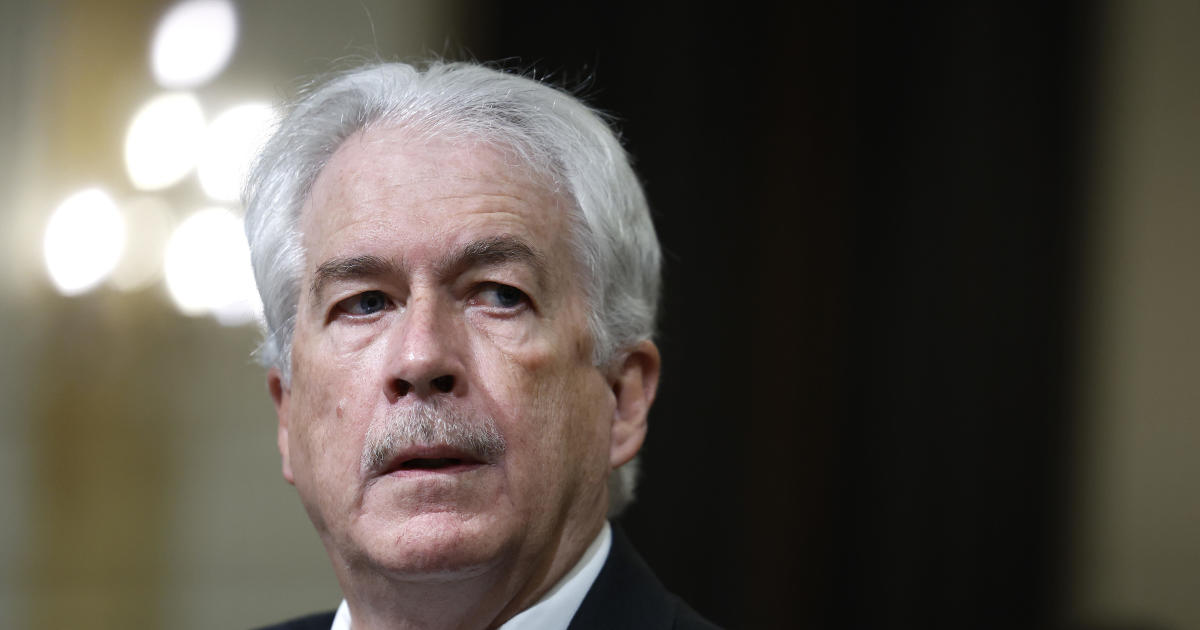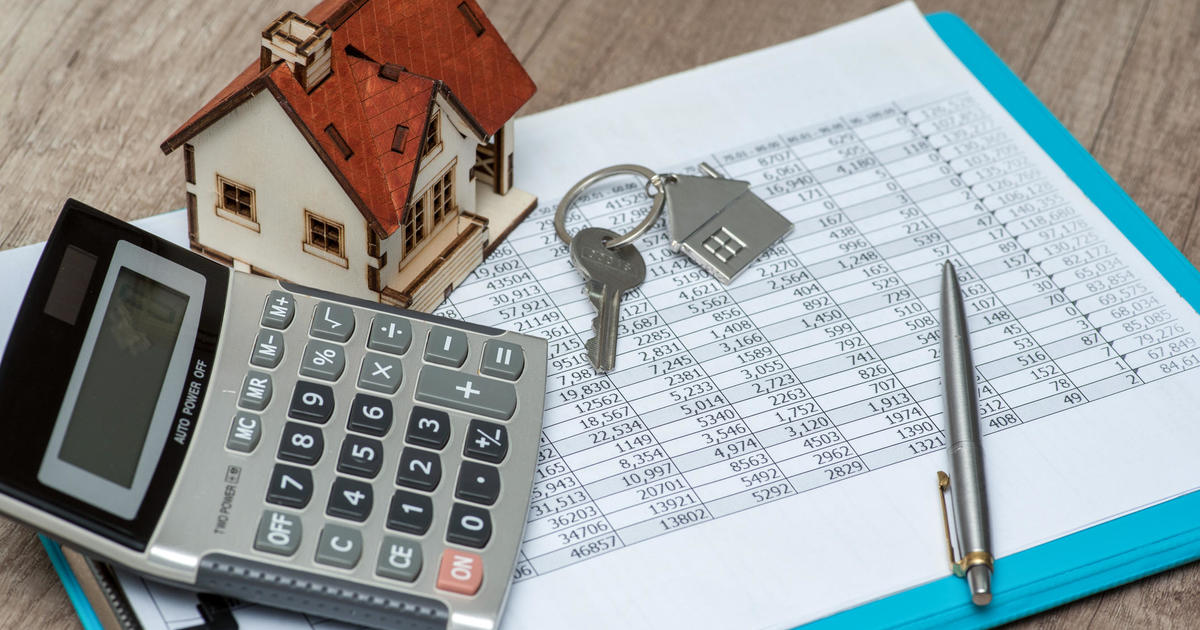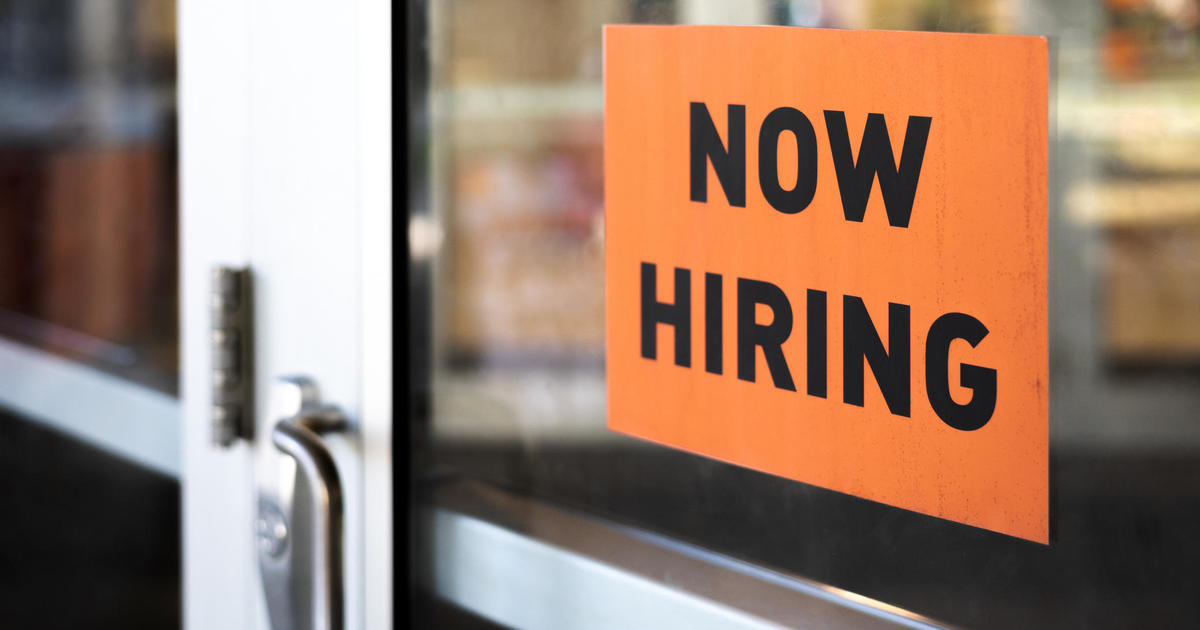Nevada extends eviction moratorium amid grim tourism outlook
CBS News is chronicling what has changed for the lives of Americans in 2020 amid the coronavirus pandemic.
Months ago, Nery Martinez and his family were among the thousands of Nevada's workers left jobless by the coronavirus pandemic. Now still waiting to be called back to work since Las Vegas casinos first shuttered in March, Martinez had faced another looming financial peril: the expiration of Nevada's eviction moratorium.
"If I don't get financial help, or the way we used to, I don't see a way to pay my mortgage payment," said Martinez, who used to work as a bartender for Caesars Palace. He added, "And I'm worried about it because I have two kids, I have a mother-in-law."
"I have to bring food first, before I can pay for a house, or a car, my mortgage payment," Martinez said.
On Monday, Nevada Governor Steve Sisolak moved to delay the end of the state's eviction moratorium by 45 days. In June, he had announced evictions and foreclosures for nonpayment would resume on September 1.
Such moratoriums have already lapsed in the majority of the 43 states that enacted them amid the outbreak, according to data compiled by Princeton University's Eviction Lab. President Trump recently floated executive action to stop states from throwing people out of their homes, telling reporters "a lot of people are going to be evicted."
"We have been trying to help the school district locate a large percentage of families that they haven't been able to connect with since the beginning of the year. Now we're starting to wonder, are these over 50,000 students that they have not been able to contact, if this big percentage is due to parents that have families that left the state," says Cecia Alvarado, Nevada state director for Mi Familia Vota.
Nevada was among more than a dozen states to set aside some of its federal coronavirus relief money to address a feared eviction crisis, devoting $30 million to subsidizing housing costs. In Southern Nevada, those funds appear to be exhausted, with the program no longer accepting applications.
"We started navigating through this pandemic with some people left out because they didn't qualify for relief for their immigration status, but now it feels like everyone is facing the same challenges. Altogether, we are running out of money," said Alvarado.
"Even the groups that came together, whether churches or nonprofits, have run out of funding. They're not operating anymore. It's a lot of uncertainty," says Alvarado.
After a wave of foreclosures in the wake of the 2008 financial crisis, Nevada touted growth from a booming tourism and convention industry. Now in Las Vegas, recent data from property analytics firm CoreLogic puts the area's record-high rate of past-due mortgage payments behind only Miami and New York. Another 327,000 Nevadans could also be at risk of eviction over missed rent payments, a July report by the nonprofit Guinn Center estimated.
"I'm behind in my rent, my electricity, everything," said Elizabeth Renteria, who used to be a guest room attendant on the Strip.
Renteria is a member of the Culinary Union, which claims to represent 60,000 across the state's hospitality and gaming industry. The labor group is among the union locals demanding a "right to return" measure by local lawmakers to guarantee laid-off workers can return to their previous positions following the pandemic.
"I've been looking for other resources," Renteria said. "I already spoke with my landlord and she said she could work with me on that. But really, I'm so behind. I really need to go back to work."
Other Unite Here locals have demanded similar provisions for laid-off workers, from Los Angeles to Canada. And more job losses are likely before Las Vegas returns to even its slowest pre-COVID business levels.
Since first allowed to partially reopen in June, most of the Las Vegas Strip's famed resort properties are trying to bring back visitors. But revenue has been curbed by coronavirus regulations, like occupancy limits imposed by state gaming regulators and quarantine requirements on visitors returning from Nevada.
The state's jobless figures continue to rank among the nation's worst, after posting the country's highest unemployment rate in May. A recent Census survey found 66% of Nevadans reported a loss of income in their household, greater than any other state in the country.
"About two weeks ago, we got a letter from the entertainment president that said they had hoped things would have responded better and that we wouldn't have to separate. But it doesn't appear that entertainment will be back any time soon," said John Sullivan, who has worked in ticketing for several MGM properties on the Strip.
Facing a federal deadline, the company sent notices Friday officially cutting Sullivan and some 18,000 furloughed workers across its operations.
"The T-Mobile Arena holds, I don't know, 20,000 people? The last I worked there, the professional bull riding had that place packed. You just can't have that many people in there right now," said Sullivan.
Of the largest casino operators in Las Vegas, only Las Vegas Sands claims not to have laid off workers in the face of the pandemic. Caesars Entertainment and Station Casinos have moved to furlough or let go thousands of workers. Wynn Resorts, which had paid out full salaries and benefits to its employees during the shutdown, recently cited "significantly reduced demand" in furloughing a share of its workforce "in the single digits" and permanently closing one of their most popular shows.
The Las Vegas Convention and Visitors Authority estimates Southern Nevada hosted 1.4 million visitors in July, 40% below 2019. Plans for mammoth Las Vegas events that would have drawn thousands to the valley, like CES or the National Finals Rodeo, have been abandoned. Casino winnings on the Strip were down 39% in July from the same time last year.
July's downturn is the smallest since April and May this year, when casinos on the Strip reported a nearly 100% collapse in gaming revenue. But that figure still dwarfs the pre-2020 drop of 25.8% recorded in October 2008, according to a Nevada Gaming Control Board review of data shared with CBS News, marking a fifth month of historically bleak business for an industry that once made up one in four jobs in Nevada.
New cases and deaths appear to have crested in Nevada, after spikes in July led the White House to label Southern Nevada a COVID-19 "red zone." But casino workers have reportedly complained of lackluster enforcement at some casinos over mask mandates.
More than 500 non-Nevada residents have tested positive for COVID-19 in the state since June 1. Critics of the reopening have cited a ProPublica analysis of smartphone data fingering Las Vegas as a "likely hotbed" for COVID-19 spread, showing thousands of users traveling from Nevada to other states around the country.
"I'm trying to hope everything is going to be okay. You know, I can't be worried for six, seven months right," said Roshan Perera, who recently returned to work in the housekeeping department for the Venetian Las Vegas.
Perera praised safety precautions taken by his employer but acknowledged the pandemic could again sideline the industry.
"If I was in a position not to go to work, I would have done that. I would have stayed home. But it's about me and my family," Perera said. "Everybody's scared, but they do what they got to do."



